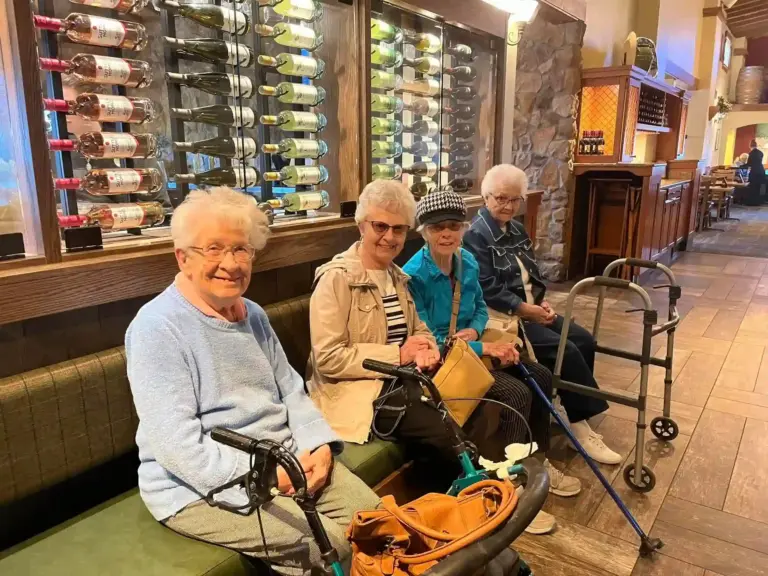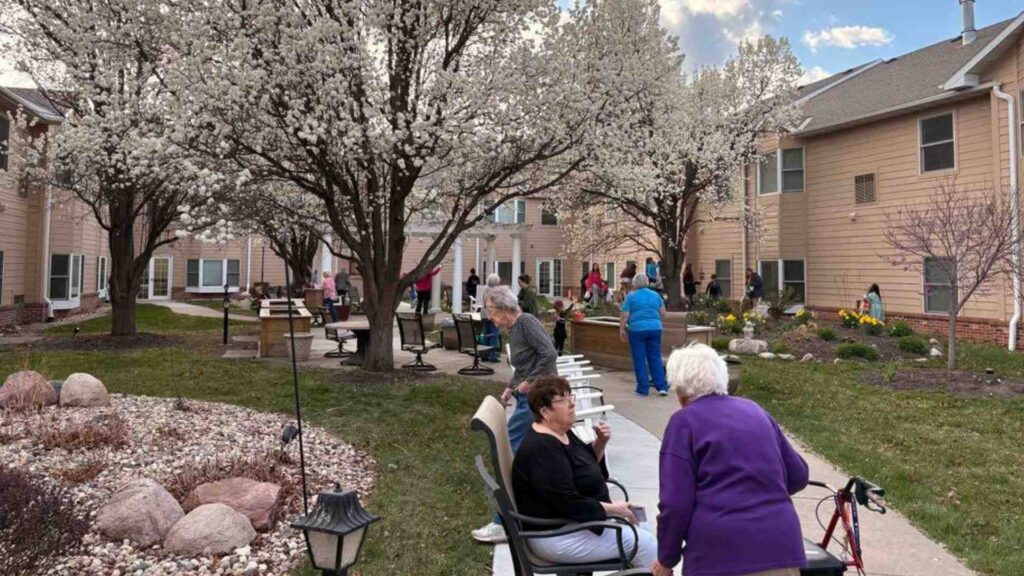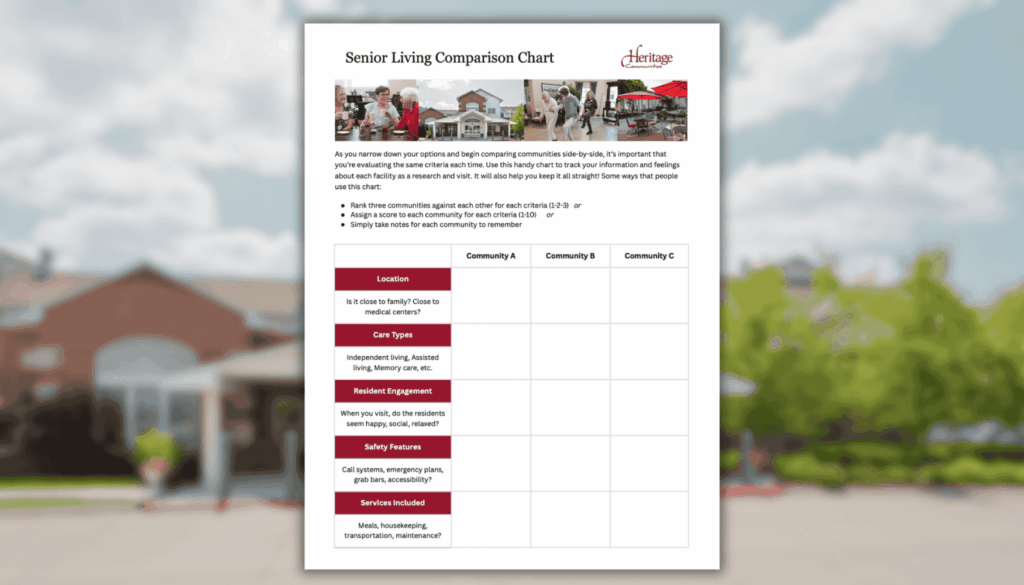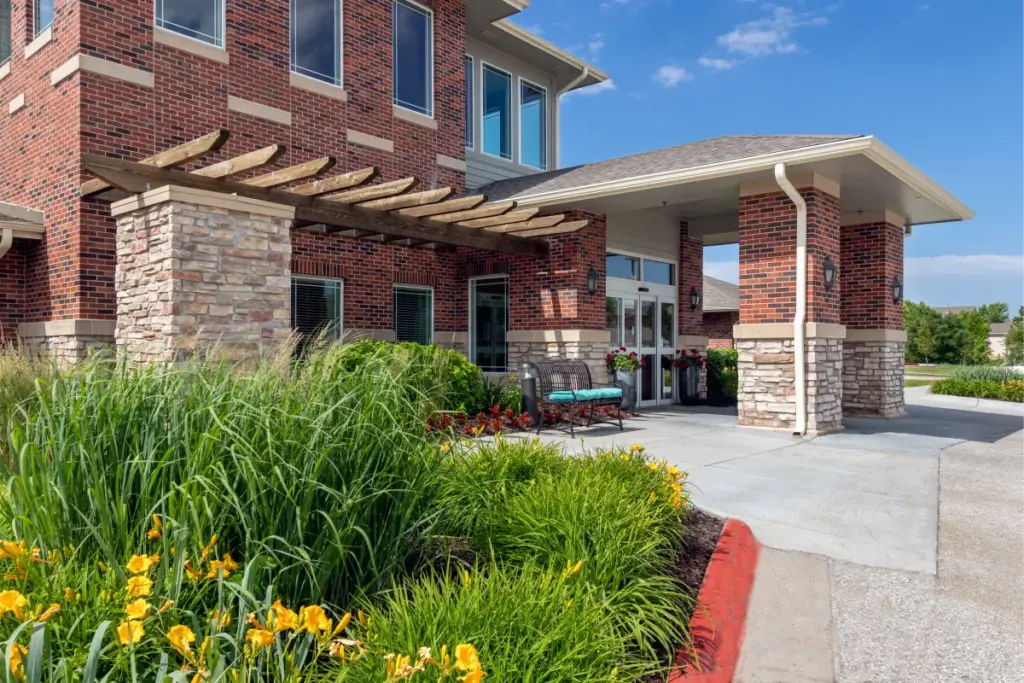Adjusting to Life in Memory Care: How Long Does It Take?
Making the decision to move a loved one into memory care brings with it a range of emotions for all involved. Is it the right time, have you selected the right community, will your loved one be angry with you, how do you help them adjust… so much to hold in your heart and your...

Making the decision to move a loved one into memory care brings with it a range of emotions for all involved. Is it the right time, have you selected the right community, will your loved one be angry with you, how do you help them adjust… so much to hold in your heart and your mind. Through it all, it’s important to remember that life in memory care can open a door to increased independence and functionality for a person with Alzheimer’s disease or other form of dementia.
It’s also important to remember that both your loved one, as well as you and your family, will go through an adjustment period. At Heritage Communities, we know this transition can be hard on everyone. We’re here to help. We will listen, support, encourage and provide information.
Adjusting to Life in Memory Care: Help for Families and Loved Ones
Understanding Why Memory Care Is the Right Choice
A key factor in a smooth adjustment is making sure your loved one is in an environment where they can be the most successful. In a dedicated memory care setting, they will have the benefit of 24-hour attention from trained caregivers who understand how to engage and support, as well as the comfort of being around others who go through the day at a similar pace. In other words, maximized independence and functionality even while the disease progresses.
According to Helen Crunk, Regional Healthcare Specialist for Heritage Communities, some adult children might wonder if assisted living would be a better choice, simply because it’s difficult to face the idea of having moved a loved one into memory care.
“Fear of the unknown can really come into play,” says Crunk. “Especially when an adult son or daughter isn’t knowledgeable about what exactly memory care can offer. Assisted living might sound better at first. But when the environment and programming is not specifically geared for someone who needs additional assistance, it could result in loss of dignity as well as a feeling of loneliness. Memory care is designed to alleviate that.”
Finding the Right Memory Care Community
Transitions can be smoother when the fit is right. Crunk says it’s important to gather as much information about your options as you can so that you can make a decision that brings you peace of mind—and understand that it does take some time to get there.
“Once your parent has received a diagnosis of cognitive impairment, start looking for the right community that will best suit their needs,” says Crunk. “That will make the transition smoother for them and give you peace of mind.”
You want a memory care community that:
- understands the cognitive impairment process
- tells you how they educate the support team
- discusses what individual programs are available, and how they ensure the success of those programs
- checks the important boxes for your family, in terms of location, financial considerations, etc.
Moving in Smoothly to Memory Care
It’s natural to wonder how much information you should give your parents prior to their moving into memory care. “Usually, it’s not a good idea to tell them in advance, as it can result in enhanced anxiety and confusion,” says Crunk. “Instead, a conversation the day before moving or that day could be better, and even then, don’t make the change sound permanent. Already having decorated their new apartment or suite with familiar art, furniture or family photos will help it feel like home. But remember, everything will be strange and unfamiliar at first; patience and positive statements are important.”
If possible, attend an activity with your loved one, or have a meal with them that day. If they ask you about “going home,” redirect the conversation or distract them to change the subject. “It’s especially important to not argue with your loved one,” says Crunk. She adds that sometimes, “therapeutic fibbing” can get you through a difficult moment. As Daily Caring says, therapeutic fibbing can help you step into their current reality and spare them unnecessary upset and distress. Caregivers and staff can also be of help when you are introducing them to their new life in memory care.
Settling into Life in Memory Care
Helen Crunk says “It’s quite normal for a new memory care resident to experience agitation, anxiety, sadness and confusion upon moving, especially if they are in a later stage of dementia. The daily struggles your parent is currently facing also will play a factor in how quickly they adjust to life in memory care. Their awareness of their surroundings, recognition of family members, how they perceive their situation and their personality also have an effect.”
And while there is no set timeline for adjustment, at Heritage, experience has shown that families can expect things to get easier every week, especially if family members are visiting and participating as much as possible in activities, mealtimes, and so on.
“In fact, through our Portaits® program, we help each resident remain as independent as possible, engage with people and enjoy new and beloved activities, and find a meaningful place in the community. We invite every member of the family to give us information about their loved one so that we can create an individualized plan that helps each resident experience more successful moments and fewer frustrations each day,” says Crunk.
Take heart. Though the adjustment period won’t be easy, it will get better over time.
Having patience, participating in activities with your loved one, and involving as many members of your family as possible can greatly affect the adjustment period. “It makes a huge difference to know you have made a decision out of love and respect for your parent,” says Crunk.
With a growing understanding of your loved one’s personality, talents, and abilities, at Heritage, we can continually meet their needs, while keeping family or key advisors apprised of changes, challenges, and successes. More joy in each day: memory care in a Heritage community.
We get to know and love each of our Memory Care residents. Download our free Family Decision Toolkit, Your A–Z Guide to Choosing The Right Senior Living Community. Or contact us today.







